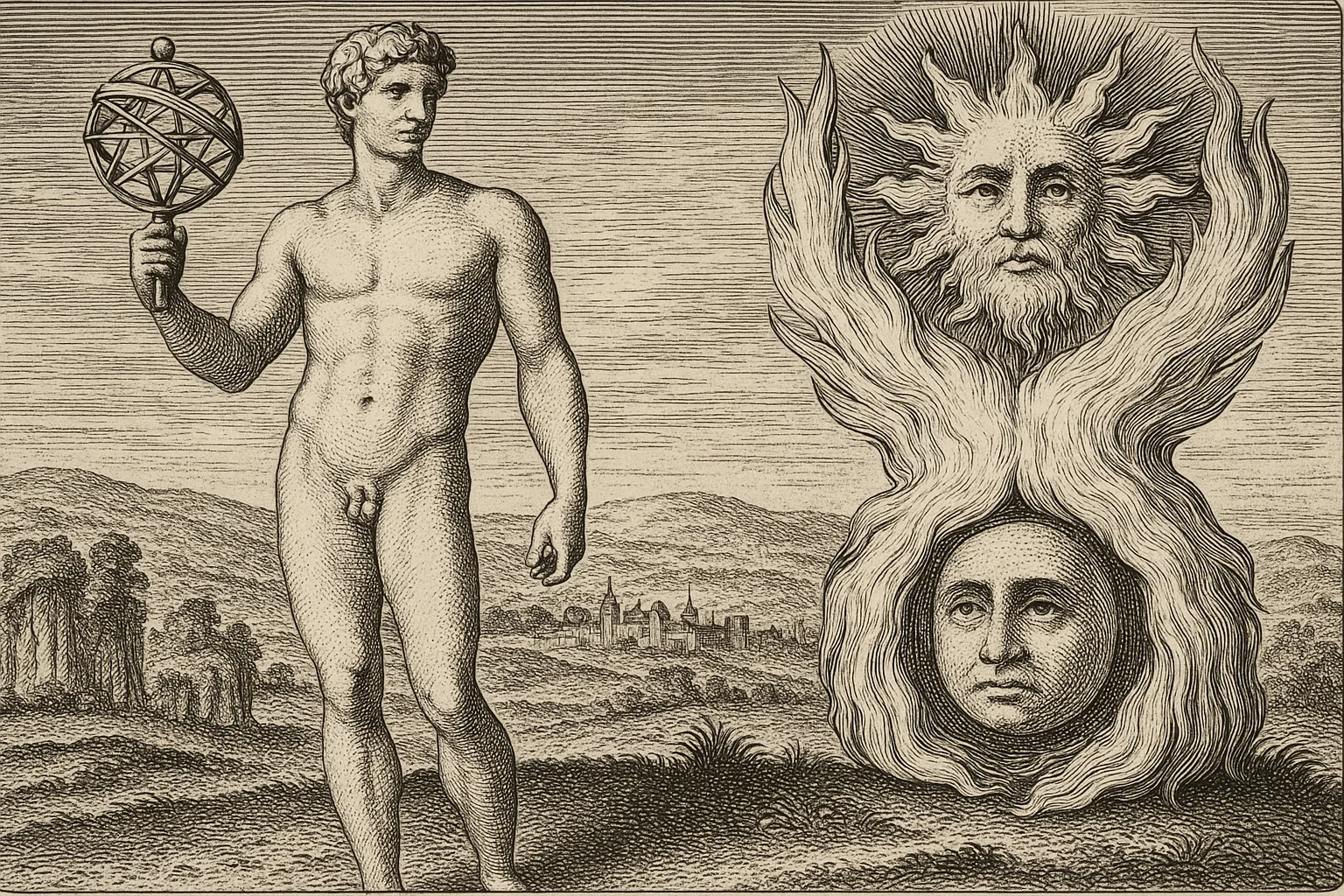In Treatise IV of the Corpus Hermeticum, Hermes Trismegistus admonishes his son, Tat:
“Unless thou first shall hate thy Body, son, thou canst not love thy Self. But if thou lov’st thy Self thou shalt have Mind, and having Mind thou shalt share in the Gnosis.”
For centuries, this statement has justified asceticism, bodily suspicion, and a false dichotomy between flesh and spirit, a motif that threads its way from the Orphic mysteries to the Neoplatonists, and into the darker corners of Christian mysticism. Yet, such literalism is the first dogma that must be put to death.
The Hermetic tradition, when read with living eyes, reveals not contempt for the body but a call to the end of dualistic thinking. The division between holy spirit and fallen flesh is itself a poison; what must be relinquished is the fear of union. The body is not a mistake, nor a prison. It is the living crucible where transformation is accomplished, where ignorance is put to rest and gnosis is born.
The danger of a literal, ascetic interpretation is fragmentation: a spirit divided against itself, unable to reconcile heaven and earth, desire and devotion. The true Hermetic way is alchemical: Temperance, the living union of opposites, where matter and mystery are reconciled in a single embrace.
Here the body stands not as an obstacle, but as altar and offering. Pleasure is not to be consumed carelessly or reduced to mere indulgence; it is to be treated as a rite. Sacred pleasure, approached with reverence, presence, and intention, is the true path to the Divine. In the experience of pleasure, especially in the moment of la petite mort, the boundaries of self dissolve. The old self dies and, for an instant, the Divine is touched. The body becomes the site of revelation, the place where mystery is not just known but embodied.
Yet let it not be forgotten that the path of embodiment, and the sanctification of pleasure, is not without its weight. The burdens we carry, such as ancestral shame, collective fatigue, the inherited suspicion of flesh, may feel overwhelming at times. To honor the body as altar is to accept the labour of transformation. It is to persist, even when the sacred feels heavy and the threshold distant.It is through bearing the weight and continuing the Work that the hidden fire is tended. What seems burden is, in truth, the final threshold before release. Only by carrying the task to its end, without abandoning the flesh, nor collapsing beneath the load, does one find the quiet arrival of grace. The old burdens transmute, and what was once a heaviness becomes the ground of renewal.Where the body is honoured with patience and devotion, the invisible promise is slowly fulfilled: the sanctity longed for reveals itself, quietly, in the marrow of the world.
